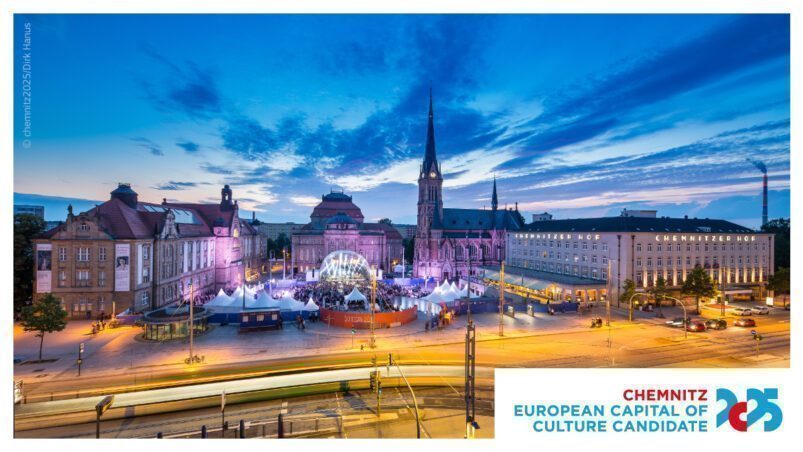Chemnitz has been recommended for the European Capital of Culture 2025 title in Germany. Chemnitz, in the state of Saxony competed with Hannover, Hildesheim, Magdeburg and Nürnberg.
Mariya Gabriel, European Commissioner for Innovation, Research, Culture, Education and Youth, said:
“After Berlin in 1988, Weimar in 1999 and Essen for the Ruhr in 2010, Chemnitz will be the fourth city in Germany to host the European Capital of Culture title in 2025.
Hosting a European Capital of Culture is a wonderful opportunity for a city and its surrounding area to bring culture right to the heart of their various communities and for their citizens to discover the rich diversity of cultural expressions in the European Union and beyond.
Visitors from Europe and all over the world will also have the possibility to discover the city, its cultural assets and its creativity. Now, more than ever, developing European partnerships is essential to reinforce the sense of community and solidarity between our peoples.
I hope that Chemnitz will reap the long-term cultural, economic and social benefits that the European Capital of Culture title can bring.”





The old and new city hall, a bust of Karl Marx, watercastle Klaffenbach, the St. Petri Church and the Lutheran Church. Images: Sandro Sandro Schmalfuß Wikimedia CC BY-SA 3.0, Reinhard Höll Wikimedia CC BY-SA 3.0, Kolossos Wikimedia CC BY-SA 3.0, Barras Wikimedia CC BY-SA 3.0 and Zöblitz Wikimedia CC0.
European Capitals of Culture
The European Capitals of Culture initiative is designed to:
- Highlight the richness and diversity of cultures in Europe
- Celebrate the cultural features Europeans share
- Increase European citizens’ sense of belonging to a common cultural area
- Foster the contribution of culture to the development of cities
The initiative was developed in 1985 and has, to date, been awarded to more than 50 cities across the European Union. The 2020 European Capitals of Culture are:
Upcoming European Capitals of Culture are:
- 2021: Elefsina (Greece), Timisoara (Romania) and Novi Sad (Serbia),
- 2022: Kaunas (Lithuania) and Esch-sur-Alzette (Luxembourg)
- 2023: Veszprém (Hungary)
- 2024: Tartu (Estonia), Bad Ischl (Austria) and Bodø (Norway)
Curious to know what Chemnitz has to offer? Have a look at Deutsche Welle’s gallery here and at Tagesschau’s video (in German) below.
For more information about the European Capitals of Culture initiative, download the factsheet here.
Source: Creative Europe.
Read more news on the European Capitals of Culture. Or click on one of the tags below.

